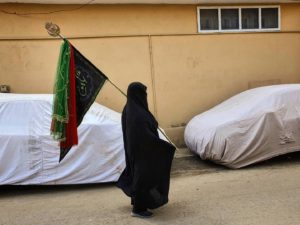Last week, Pakistan was re-elected to the UN Human Rights Council (HRC), the main UN body tasked with the promotion and protection of all human rights around the globe, for another three-year term. The Coalition for Religious Equality and Inclusive Development (CREID) calls upon Pakistan to take seriously its human rights obligations and ensure better protection of those of all faiths and none in the country.
The members of the HRC are elected by member states of the UN General Assembly, which are required to take into account the state’s contribution to the promotion and protection of human rights, their voluntary pledges and commitments.
In a recent statement, members of CREID said:
“As such, we regret that Pakistan has not undergone the long-awaited human rights reforms before it has been re-elected for a fifth term since the establishment of the UN Human Rights Council in 2006. These reforms are needed to address some of the serious and structural human rights challenges that Pakistani face, and in particular those faced by its religious minorities.”
To promote its candidacy for this election, Pakistan made very ambitious voluntary pledges to:
- Preserve, promote and strengthen freedoms of the press, communication, assembly, expression or opinion, religion or belief, consistent with our national and international obligations;
- Continue to play an active and constructive role in maintaining consensus on Human Rights Council resolution 16/18, entitled “Combating intolerance, negative stereotyping and stigmatization of, and discrimination, incitement to violence and violence against, persons based on religion or belief”; work with relevant States and other stakeholders for enhanced implementation of resolution 16/18 and its action plan (Istanbul Process); host the next meeting of the Istanbul Process in Pakistan.
While these voluntary pledges are important and welcome, at this time they are little more than words on a page The true test is, of course, implementation of measures that fulfill rights and which see these words become reality in marginalized communities across Pakistan.
Huge gap between international commitments and the reality on the ground
Over the years of Pakistan’s service as a member of the HRC, the CREID team has been monitoring the situation of religious minorities in Pakistan. This shows us that there is still a huge gap between Pakistan’s words and international commitments and reality on the ground.
Among others, CREID has been raising the dire situation of religious minority women and girls in Pakistan, abducted, forcibly converted, forcibly married, and left without any plausible avenue for legal recourse (read the story of Saneha).
CREID has been shedding light on the situation of the Ahmadiyya community, and the ever-growing issue of hate crime and hate speech against this community. Other groups recently at risk include Hindus (tension sparked by plans to build a Hindu temple in Islamabad) and Shia Muslims (a recent spike of hate crime and 4 Shia deaths in August and September 2020 against the backdrop of labelling the Covid-19 as “the Shia virus”).
The situation of religious minorities, as observed by CREID, only deteriorated during the Covid-19 pandemic; primarily Christian and Hindu sanitation workers were issued with no or minimal PPE despite their essential role in cleaning Covid-19 wards and quarantine centres.
CREID has been understanding and raising the issue of how the situation of religious minorities was exacerbated by Covid-19, including with some religious communities being blamed for the spread of the virus adding to existing social discrimination affecting those communities.
Time for Pakistan to take its human rights’ obligations seriously
CREID calls upon Pakistan to take seriously its human rights obligations, but also the voluntary pledges it has made while seeking election to the HRC, and ensure better protection of those of all faiths and none in the country. And while Pakistan pledges to do that strengthening of the National Commission on Minorities, working on a national interfaith harmony policy, and an action plan against religious persecution, some of the recent developments suggest that these steps will not trigger the needed change. Indeed, the National Commission on Minorities, as recently introduced, is viewed by minority communities as a weak body without true independence or any real power to make changes.
The honour of being a member of the UN HRC comes with a responsibility. As Pakistan takes the seat for another three years, it should not accept it as a reward for its human rights legacy, but as an opportunity to fulfil its obligations. Next time the UN General Assembly should decide that actions, not words, are what should determine the election result.

